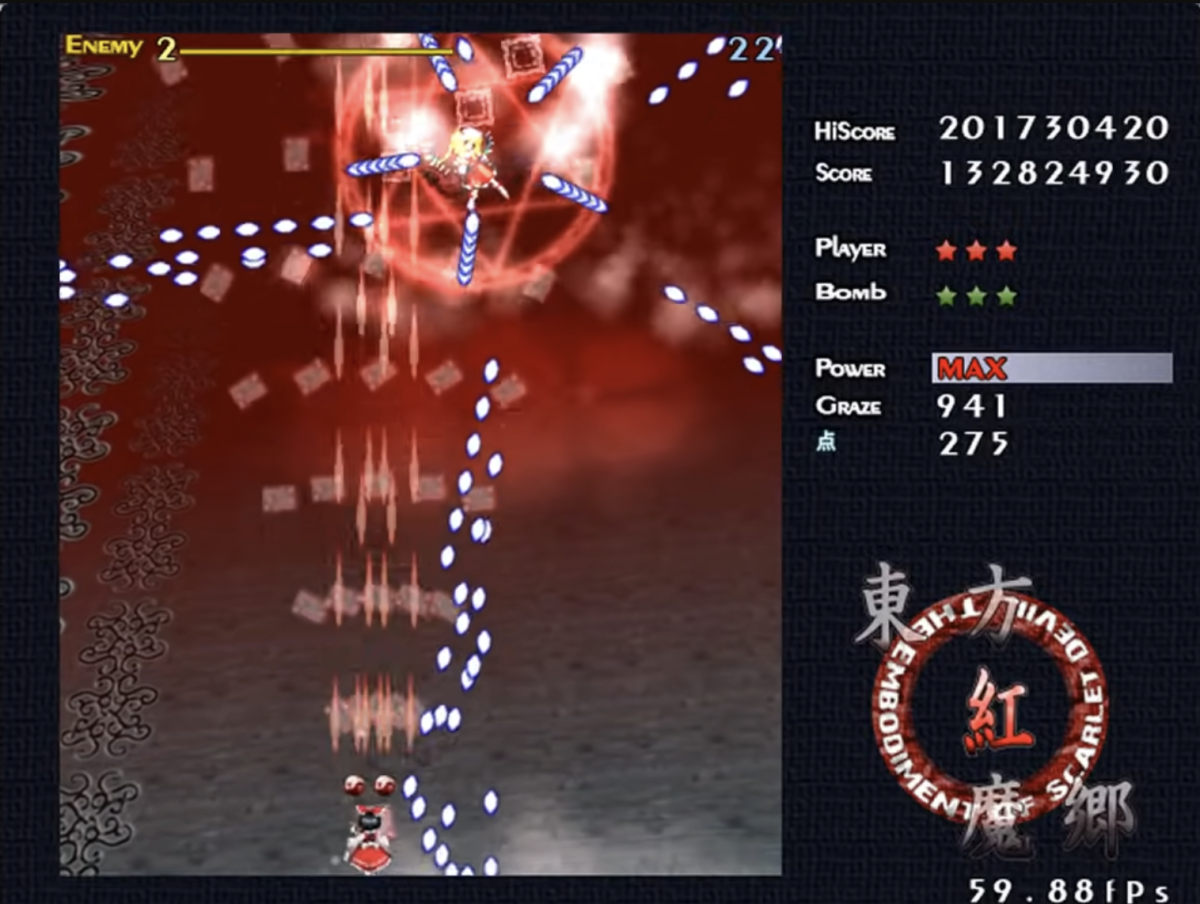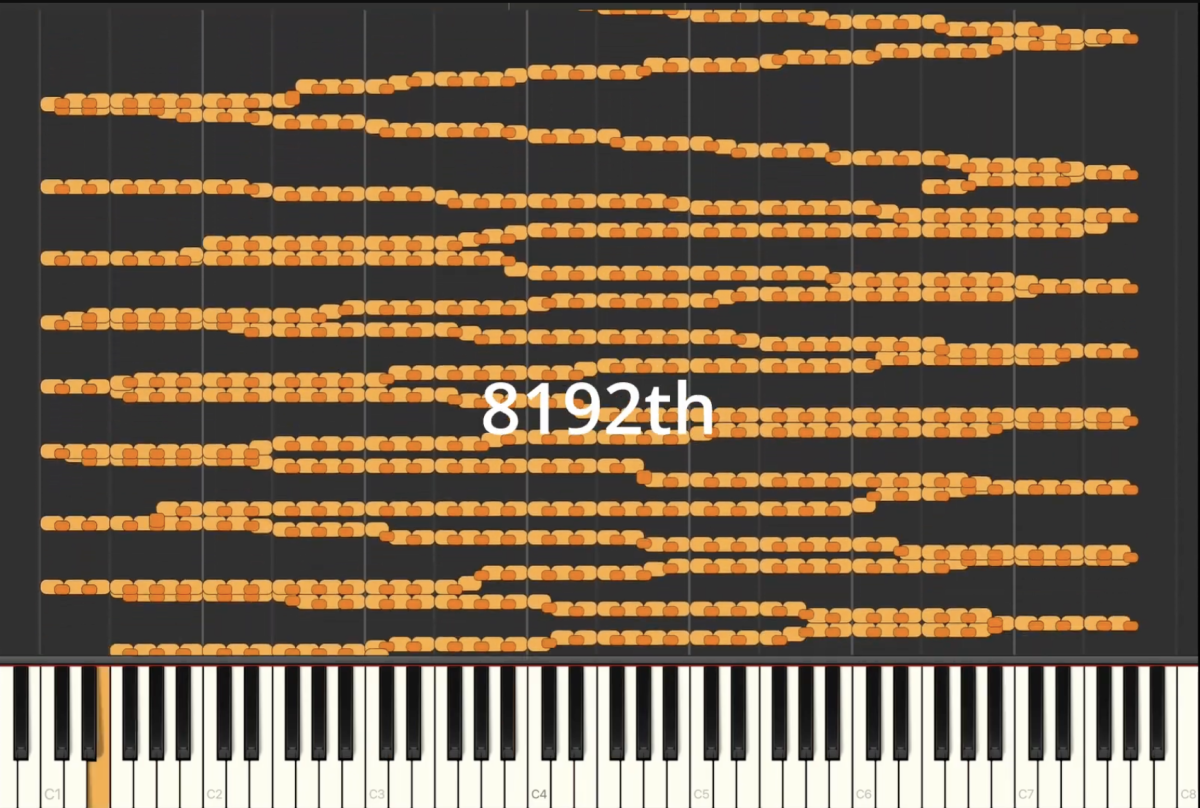
The Aesthetic Qualities of Black MIDI and Its Relationship with a Distinct Community
In this blog post, you’ll discover how Black MIDI aligns with the Touhou gaming community through remixes and shared aesthetics. Read about how the challenging note structures in Black MIDI mirror the complexity of bullet hell games, and how both foster vibrant online communities dedicated to skill mastery and sharing techniques.
Even prior to the emergence of Black MIDI, it was popular within the community of Touhou games and Touhou related songs to create elaborate remixes of songs from these games. In this regard, Black MIDI aligns with the expectations of this particular community. The aesthetic of vertical scrolling 2D shooting games extends to multiple levels within the aesthetics of Black MIDI.
The following section highlights some aspects of these games in order to link them to the aesthetics of Black MIDI:
The Intense Challenge
Bullet hell games offer a high level of difficulty, with players facing overwhelming numbers of bullets and obstacles on screen. This challenge can be likened to the task of benchmarking the computer to handle an exceptionally large number of MIDI notes.
Replay Value
Bullet hell games frequently offer various difficulty levels, hidden secrets, and unlockable content, encouraging players to replay levels and enhance their skills. This correlates with the practice of continually rendering newer versions of the same song with higher note counts in Black MIDI compositions.
The Visual and Sonic Representation
Bullet hell games are renowned for their mesmerizing visual effects and intricate bullet patterns, which serve as a sonic representation. Both can be likened to the auditory image of rapid, repetitive notes and chords, as well as the visual representations generated by programs like Synthesia.
The Skill Mastery
Success in bullet hell games requires precise timing, quick reflexes, and strategic planning. Players must learn enemy patterns, memorize level layouts, and hone their skills to overcome increasingly difficult challenges. This parallels the skill of tuning and optimizing the computer for Black MIDI composition.
Online Community
Bullet hell games have a dedicated community of players who share strategies, tips, and high scores online. On online platforms such as Niconico (known before 2012 as Nico Nico Douga) and YouTube, blackers exchange details about their computer specifications and the software they use. They freely share their MIDI files for others to create new blackened scores and even request assistance from blackers with more powerful CPUs (Central Processing Units) to render MIDIs that may not function on their own systems. This illustrates how Black MIDI has developed within a digital community interconnected through specific online platforms. Escape and Relaxation Despite their demanding gameplay, bullet hell games can offer a sense of escapism and relaxation for certain players. Immersing oneself in fast-paced action and intense gameplay can provide a temporary reprieve from real-world stressors, allowing players to fully engage with the game’s immersive world. Similarly, listening to Black MIDI can evoke a comparable experience. It can be likened to an intoxicating sensation where one surrenders to the overwhelming auditory complexity, as their perception becomes incapable of processing everything.
Summarizing, one can say that the aesthetics of Black are characterized by visual complexity, musical intensity, community engagement, and shared cultural references.
This blog post is part of the Norient Online Special Hyperplexia, an expansion of the performance project of the same name by composer and pianist Stefan Schultze. The Special was funded by Bern Academy of the Arts HKB.
Biography
Stefan Schultze (*1979, Germany) is a composer and pianist and one of the most multifaceted and original musicians to come out of the German jazz scene. Schultze studied piano and composition in Cologne and New York. He occupies the interface between new music, improvisation, and jazz. His artistic projects cover a spectrum of compositions for small and large ensembles, from leading larger ensemble formations to initiating and producing projects on national and international stages. His compositions explore and translate music from a myriad of contexts, opening new sonic territories and transcending genres. Follow him on his website, Bandcamp, or Instagram.
Published on June 18, 2024
Last updated on June 24, 2024
Topics
From Bangladeshi electronica to global «black midi» micro scenes.
How does the artits’ relationship to the gear affect music? How to make the climate change audible?
How artists deal with the practice that some call «time-travel» and others «audiotopia».

![Screenshot from: «[Black MIDI] MIDITrail - Touhou 6: Last Brutal Sister Flandre Scarlet 1 Million», uploaded to YouTube.](/sites/norient.com/files/styles/norient_free_landscape_1_200_/public/02_title_high-density-remix-skill.png?itok=4FQoZ8kC)